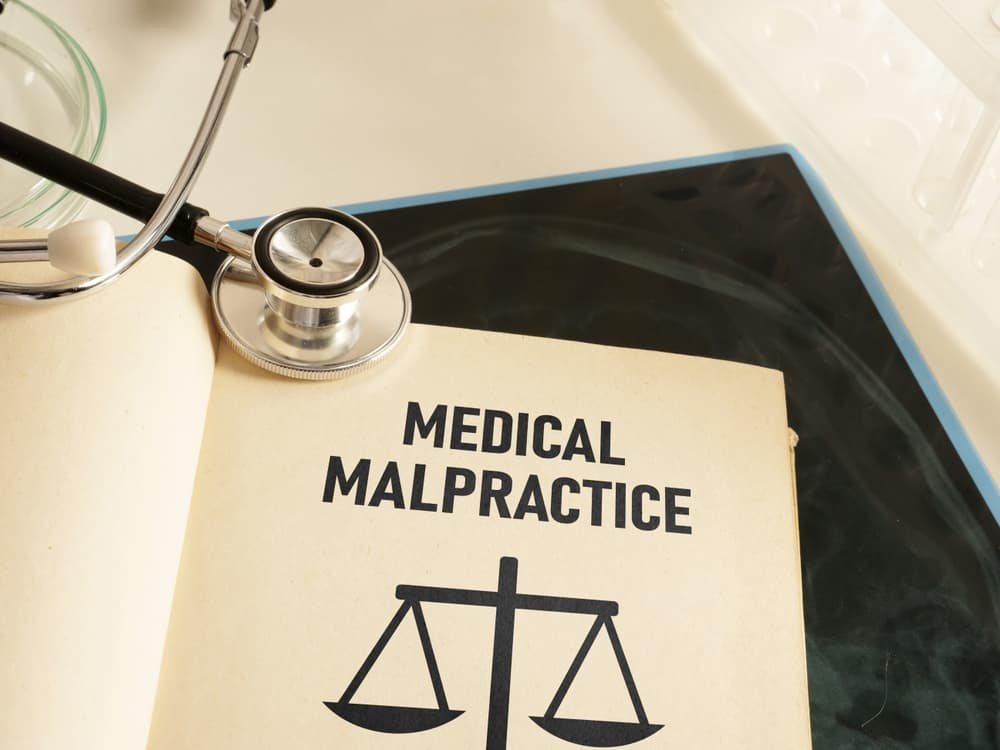Slip and fall laws are integral to our legal system, ensuring safety and accountability in private and public spaces and providing recourse for individuals who suffer injuries due to negligence or oversight. These complex laws vary from state to state.
Your lawyer can explain the intricate, state-specific slip and fall laws if you suffered injuries in a slip and fall accident in South Carolina and are considering your legal options. These laws pertain to the specifics of premises liability and negligence.
Knowing what you need following a slip and fall incident will help with any compensation claims you may decide to file. It also helps to know what you will need to prove negligence in such cases, the potential compensation you can expect, and the necessary role a Columbia slip and fall accident attorney plays in these situations.
Understanding Slip and Fall Laws
In South Carolina, laws require property owners and managers to ensure their premises are reasonably safe and free of hazards. They must either warn visitors or rectify any dangerous conditions they know or should reasonably be aware of.

These conditions include slippery floors due to spills or weather conditions, dangerous staircases without handrails, poorly lit areas, or any other hazards that could lead to accidents. Property owners may be legally responsible for any injuries due to these unsafe conditions if they do not take necessary precautions.
Notice is a vital aspect of South Carolina's slip and fall laws. This term refers to whether the property owner knew or should have known about the dangerous conditions. A property owner or manager can be liable for resulting accidents if they become aware of a slippery floor or broken handrail and ignore it.
You cannot automatically hold the owner at fault if you slip and fall on their property.
The court will consider:
- The cause of the unsafe condition.
- How long it had been there.
- Whether the owner had an opportunity to fix it.
- If the owner could have foreseen the accident.
Each case is unique, and many factors determine negligence and liability. A seasoned attorney can determine liability.
State Laws on Slip and Fall in South Carolina
Specific South Carolina laws, such as comparative negligence and the statute of limitations, influence the success of your claim. Becoming familiar with these laws can help you understand their effect on your case. Knowing whether you are partially at fault or within the time limit to file a claim can also significantly influence your ability to seek compensation for your injuries.
Obtaining legal representation becomes vital at this point. A skilled lawyer will navigate these complex laws, ensuring you receive compensation for your injuries.
Comparative Negligence in South Carolina
South Carolina adheres to the law of comparative negligence. This law could determine your claim's success and the total compensation you receive. Comparative negligence law states that if you are partially at fault for your injuries, your compensation amount may reduce in proportion to your degree of responsibility.
Your compensation could have a 30 percent reduction if you were 30 percent at fault for the accident, for example. In South Carolina, the modified comparative negligence 51 percent rule applies, meaning if you are 50 percent or less at fault for the incident, you are still eligible to receive compensation. However, every case is different, and your lawyer will advise you on whether comparative negligence is a factor in your situation.
The Statute of Limitations in South Carolina
A statute of limitations is the maximum time after an event, such as a slip and fall, within which you can initiate legal proceedings. You must file a slip and fall claim in South Carolina within the specific time frame.
This law exists for a couple of reasons. It encourages thorough and swift investigation while evidence remains fresh and witnesses' memories are reliable. It also ensures the potential defendant does not have the perpetual threat of legal action hanging over them.
South Carolina has a statute of limitations of three years for personal injury cases. Failing to file within this period could forfeit your right to claim. You should note some exceptional circumstances under which the courts may extend the three-year limit in South Carolina. This extension is known as tolling the statute of limitations.
Reasons for Tolling the Statute of Limitations in South Carolina
If the victim of the slip and fall accident was a minor or mentally incapacitated at the time of the accident, the statute of limitations may not start until the minor turns 18 or the mental incapacity lifts. You should also note that if the person liable leaves the state of South Carolina after the accident but before you file the lawsuit, the time of their absence will not count as part of the three-year limit.
There is also a provision under South Carolina law that allows for tolling if the person liable manages to conceal their identity, effectively preventing you from filing your potential claim within the statutory period. The statute of limitations may not start until you come to know or reasonably should have known about the at-fault party's identity.
These exceptions are specific and do not apply to every case. A seasoned personal injury attorney can assess your circumstances and clarify how the statute of limitations applies to your situation.
What to Do After a Slip and Fall Accident
The steps you take following a slip and fall accident have an effect on the successful filing of your slip and fall claim. With thorough preparation and by working with an attorney, you can preserve evidence and protect your potential claim.
Seek Medical Attention After a Slip and Fall Accident
Your health should always take priority. If you have a slip and fall accident, you should seek medical attention promptly, even if you do not initially see any injuries. Some injuries may not manifest apparent symptoms immediately. A medical record of the incident can provide substantial evidence if you file a slip and fall claim.
Necessary Steps After Seeking Medical Attention
After receiving medical attention, there are several steps you should take to preserve evidence and protect your potential slip and fall claim:
- Immediately report and document the accident.
- Record details of how, when, and where the accident took place.
- Gather evidence.
- Do not provide a detailed written or recorded statement to the insurance company or property owner without legal representation.
- Talk to an attorney.
These efforts can be challenging after an accident, which is another reason to enlist the aid of an experienced personal injury lawyer.
Compensation in Slip and Fall Cases
No matter the severity, accidents can take a toll on every aspect of your life, including your health and financial stability. In a slip and fall case, the law allows victims to seek compensation to cover the cost of damages resulting from the accident. Understanding the types of damages you can claim, the potential compensation you may receive, and the factors that may raise or lower the amount will help you develop realistic expectations for your case.
Types of Damages in Slip and Fall Cases
If you slipped and fell and are considering filing a claim, you may claim economic and non-economic damages.
- Economic damages (or special damages) refer to your measurable financial losses after an accident. These include medical expenses, lost income, the cost of rehabilitation and therapy, and any other out-of-pocket expenses from your injury.
- Non-economic damages (or general damages) are more subjective and difficult to quantify, such as your pain and suffering, emotional distress, or loss of enjoyment of life.
Calculating Compensation
Calculating potential compensation in a slip and fall case is not straightforward. Each case is unique and subject to various contributing factors. The compensation amount you receive should be proportional to the severity of your injuries and the financial burden from the accident.
To calculate compensation, insurance companies typically add all the tangible costs (economic damages) and then use a specific number to multiply it, depending on the severity and extent of the injuries (non-economic damages).
While this is the general method for calculating compensation, insurance companies may use other approaches. Calculating potential damages can be complex, hence the importance of hiring an experienced lawyer.
Factors Influencing Compensation
Several factors affect your compensation amount in a slip and fall case. These factors include the severity of your injuries, how these injuries change your ability to work, your age, your health condition before the accident, and the extent of the property owner's negligence.
South Carolina's comparative negligence law also affects your compensation. If you are partially at fault, your compensation amount may reduce depending on your percentage of fault.
Obtaining the total compensation you deserve is complex. With a skilled attorney advocating for you, you can navigate these hurdles and improve your chances of a successful claim.
Role of an Attorney in Slip and Fall Cases
Having an attorney by your side makes a significant difference in the success of your slip and fall case. They will navigate the ins and outs of the law and provide invaluable advice on securing the best possible outcome for your case.
The Importance of Legal Representation
A slip and fall case may involve numerous legal procedures, document filings, and, most importantly, negotiation with insurance companies and defending parties. Comprehending the extent of your rights and the compensation you may receive can be challenging without a thorough understanding of South Carolina's slip and fall laws.
Having an attorney on your side alleviates the stress of dealing with these complexities, allowing you to focus on your recovery. An attorney will represent your best interests and fight for your rights, ensuring fairness throughout the legal process.
How an Attorney Is Instrumental in a Slip and Fall Case
An attorney's role in a slip and fall case goes beyond providing legal advice. They will gather and preserve crucial evidence, consult expert witnesses, navigate the intricacies of state laws, and negotiate with insurance companies to secure a fair settlement.
If your case goes to court, an attorney can advocate for you, presenting a compelling case to the jury. With an in-depth understanding of South Carolina's slip and fall laws, a seasoned attorney can maximize your chances of receiving fair compensation for your injuries.
Selection Criteria for a Slip and Fall Attorney
When selecting an attorney for your slip and fall case, research their experience and reputation. An attorney with knowledge of slip and fall cases will thoroughly understand premises liability and comparative negligence laws, giving you an advantage. Look for an attorney with a proven track record in handling slip and fall cases, which could indicate their ability to handle your case successfully.
Another crucial factor is communication. You should have an attorney available to answer your questions, update you on the progress of your case, and explain complex legal terms.
Also examine their fee structure. Some attorneys work on a contingency fee basis, meaning they only receive a payment if they win your case. Be sure to discuss fees upfront so that there are no surprises later.
Choosing the right attorney significantly influences the outcome of your case. You must take your time to research and select an attorney who best represents your interests.
Seek Legal Representation Immediately Following a Slip and Fall Accident

Navigating the complexities of slip and fall laws is daunting, especially when dealing with the aftermath of an accident. These laws protect individuals and hold property owners accountable for maintaining safe conditions, ensuring victims of negligence cases receive justice. Slip and fall cases can be intricate, often involving many legal procedures, document filings, negotiation with insurance companies, and, in some instances, court proceedings.
The specifics of South Carolina slip and fall laws affect the outcome of a claim in the state, potentially resulting in fair compensation for your incurred damages. You do not have to navigate these complexities alone, however. A seasoned South Carolina personal injury lawyer experienced in slip and fall cases will provide invaluable advice, advocate for your rights, and secure the best possible outcome for your case.








